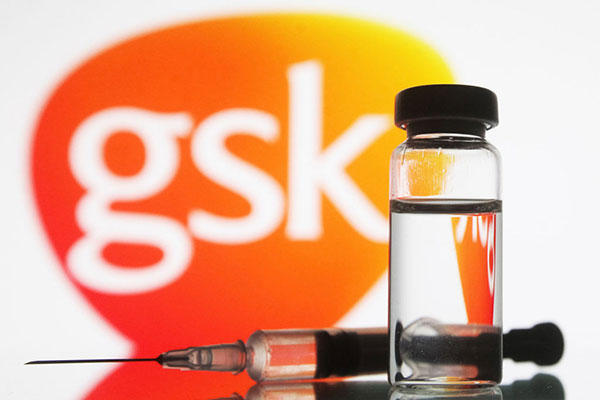The hard work starts here for GlaxoSmithKline
24th June 2021 09:07
by Richard Hunter from interactive investor
After unveiling its ambitious new strategy to shareholders, has CEO Emma Walmsley done enough to keep them happy? Our head of markets comments on Glaxo's big plan.

Whether GlaxoSmithKline's (LSE:GSK) hotly anticipated strategy update marks a true inflection point remains to be seen, but the drug giant's aims are undeniably ambitious.
The plans for the next five years are to deliver sales growth of more than 5% and adjusted operating profit exceeding 10%, with the operating margin increasing to over 30% from its current level in the mid-20s. The objectives for the following five years are no less demanding, as the company aims to deliver sales of over £33 billion, achieved by the prioritisation of R&D, and commercial investment in vaccines and speciality medicines.
In the meantime, the demerger of 80% of the consumer healthcare business will provide both focus on the strategy and is also likely to be accompanied by a special dividend to “New GSK” of up to £8 billion. It is then planned that the remaining 20% stake will be sold in due course to provide additional financial firepower to its aims for the drug and vaccine development.
- GlaxoSmithKline: aggressive growth to compensate for dividend cut
- GlaxoSmithKline: the future for one of Britain’s favourite stocks
- How this activist investor might react to Glaxo’s Q1 results
- GlaxoSmithKline share price lifted by snap investment
The raft of patent expiries have been the cause of some concern for investors, and such events often trouble large pharmaceutical companies as these significantly profitable products become generic and therefore cheaper in the marketplace. By way of mitigation, the company was keen to draw attention to the pipeline for the next decade, where 42 medicines and 20 vaccines are currently in development, predominantly in the areas of infectious and immune-related diseases and in oncology.
This pipeline will be crucial if the new GSK is to offset the patent expiries and also achieve its growth targets.
The dividend cut was well trailed and did little to dent the generally warm reaction to the overall announcement. Given the current dividend yield of 5.7%, assuming a flat 31% reduction (to 55p) would equate to a yield of 3.9%, and thereafter at 45p a yield of 3.2%. Even at the lower levels, the yields remain relatively attractive given the current interest rate backdrop.
By rebasing the dividend, this gives the company some flexibility towards achieving its new progressive policy, while also freeing up capital to help finance its wider ambitions to invest in the company’s product pipeline.
Meanwhile, the presence of an activist investor in the background further raises the stakes, and it will become apparent in the near term whether the strategic update is enough to placate the concerns which resulted in the stake originally being taken.
The initially strong reaction to the announcement waned slightly as the trading session wound down, with the shares finishing ahead by 1% on the day. Subsequent broker upgrades overnight have also resulted in a marginal gain for the shares on the morning after.
- The ii Family Money Show with Gabby Logan: watch the Richard Curtis interview here
- Subscribe to the ii YouTube channel and catch all our latest interviews and video content
- Check out our award-winning stocks and shares ISA
Even so, the scale of the challenge is reflected by a share price which has declined by 16% over the last year, as compared to a gain of 16% for the wider FTSE100 index. Over the last five years, shareholders have suffered a drop of 5%, despite having received some generous dividend payments in the meantime.
Following a strategic reset, the hard work arguably starts here. AstraZeneca (LSE:AZN) is for the moment significantly preferred in terms of the market consensus, coming in at a strong buy. Glaxo, meanwhile, remains a 'hold' in terms of the general view and has much ground to make up to reverse the years of what has been a tepid share price performance.
These articles are provided for information purposes only. Occasionally, an opinion about whether to buy or sell a specific investment may be provided by third parties. The content is not intended to be a personal recommendation to buy or sell any financial instrument or product, or to adopt any investment strategy as it is not provided based on an assessment of your investing knowledge and experience, your financial situation or your investment objectives. The value of your investments, and the income derived from them, may go down as well as up. You may not get back all the money that you invest. The investments referred to in this article may not be suitable for all investors, and if in doubt, an investor should seek advice from a qualified investment adviser.
Full performance can be found on the company or index summary page on the interactive investor website. Simply click on the company's or index name highlighted in the article.